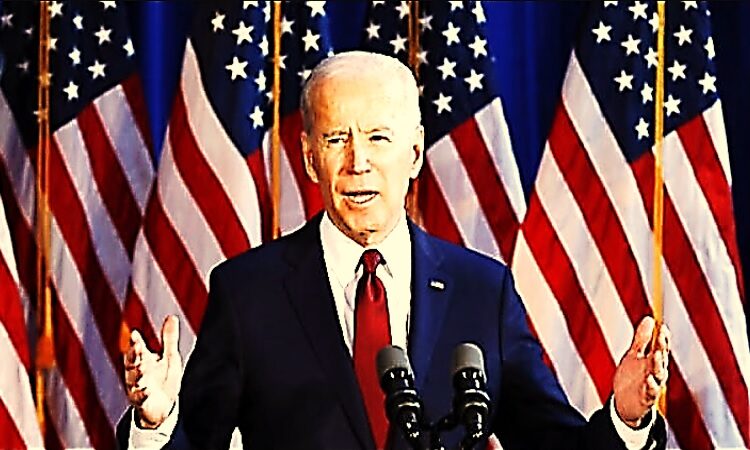Author Lauren Schwartz | Friedrich Ebert Stiftung | Published 21 April 2020
Lauren Schwartz considers what US foreign policy might look like under a Democrat president – after Trump, and after coronavirus. The paper canvasses “30 years of ambivalent foreign policy” – from 1989 through to 2020, and a Trump administration prepared to signal its willingness and ability to adopt a more competitive approach towards its rivals, militarily, economically and diplomatically.
A new American foreign policy should expand its reach beyond the military – though not eliminate it – by considering the many non-military factors that feed into foreign cooperation and the pursuit of American national security. A restored emphasis and renewed relationship with liberal American allies, reconsideration of budgetary priorities in achieving security goals, and a new economic philosophy are all critical elements of building a better American position in a new great power competition, ensconced and reflected in values-based policy.
Some of the ideas covered in the paper are:
- that there is a need for rethinking of great power competition and what constitutes national security, noting the “convergence of thought from the center right and the center left upon the point that national security as a basically and exclusively militaristic area of foreign policy is manifestly inadequate [that] is a striking shift in thought from the immediate post-9/11 conception of national security”;
- that US foreign policy makers need to recognise that they need to move beyond the prevailing neoliberal economic philosophy of the past 40 years – and the tendency to reduce foreign-policy to the notion that what’s good for U.S.-based multinational corporations is necessarily good for the United States;
- that post-Trump American foreign policy under Joe Biden must recognize that a good and effective foreign policy is a product or function of having effective politics at home; and
- that a Biden administration would be able to pursue a new and non-military foreign policy comprising
- a reinvestment in diplomacy
- a change its rhetorical approach toward allies, recognizing the importance of strategic and values-based partnerships
- a return to diplomacy with Iran – a restoration of Obama-era policy that contributed to the JCPOA
- reconsideration of the U.S.-Saudi relationship
- cooperation with China on combating climate change, while also determining where and how to push back against China in great power competition.
Read the full excerpt or download the pdf (126KB) document (external links to FES website).

